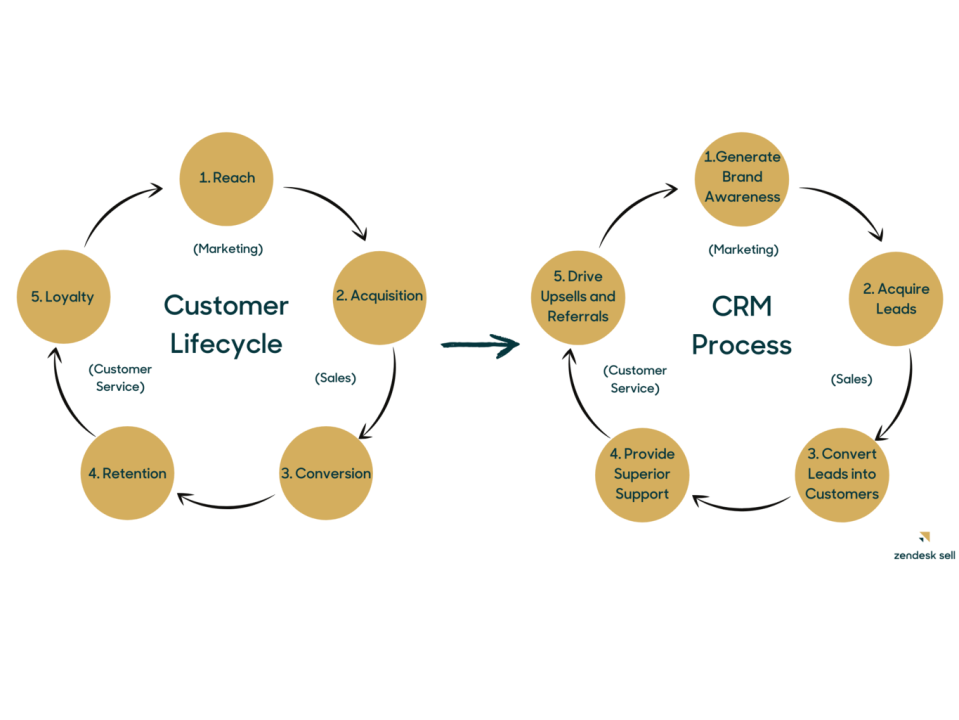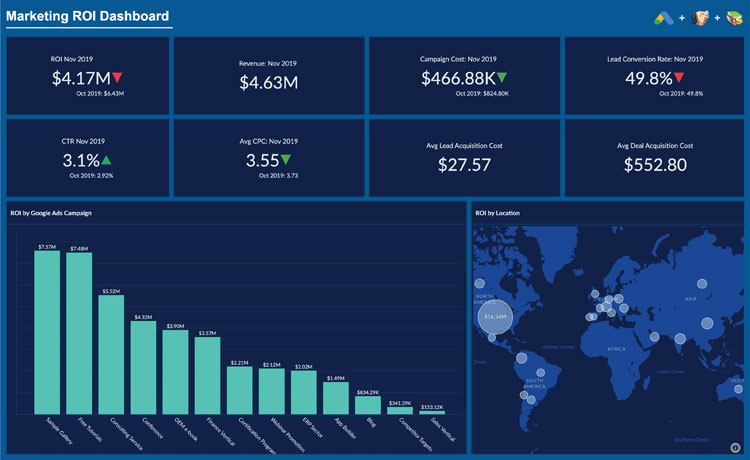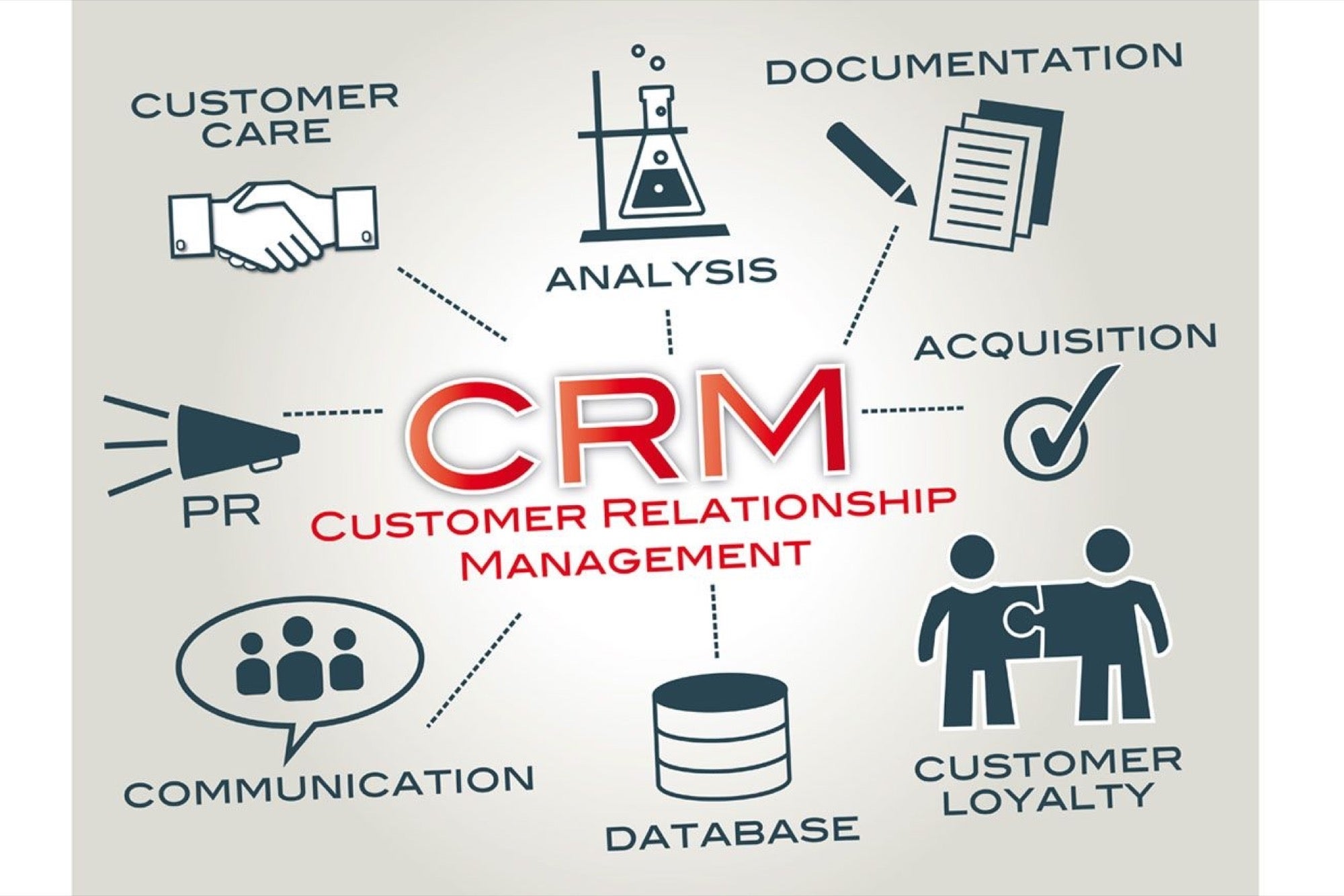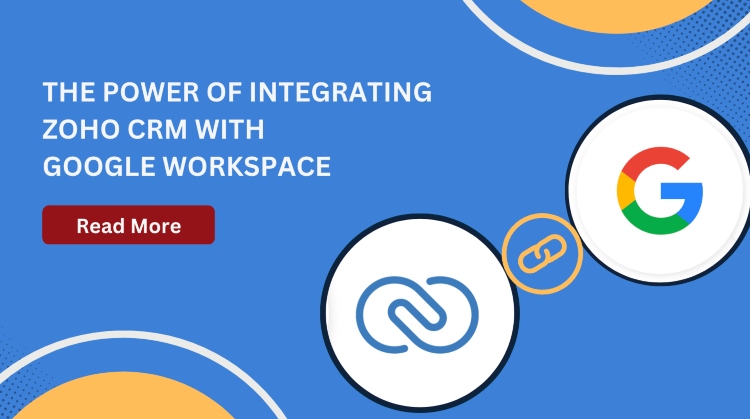
Unlocking Growth: Crafting Winning CRM Marketing Campaigns for Maximum Impact
In today’s hyper-competitive business landscape, simply having a great product or service isn’t enough. You need to connect with your audience, understand their needs, and nurture relationships to drive conversions and foster long-term loyalty. That’s where Customer Relationship Management (CRM) marketing campaigns come into play. They are the engine that powers personalized engagement, turning prospects into customers and customers into brand advocates. This article dives deep into the world of CRM marketing campaigns, providing a comprehensive guide to help you craft campaigns that resonate with your audience and deliver exceptional results.
What is CRM Marketing? A Foundation for Success
At its core, CRM marketing is a strategic approach that leverages customer data and insights to create targeted, personalized marketing initiatives. It’s about more than just sending out mass emails; it’s about understanding your customers’ behaviors, preferences, and needs to deliver the right message, at the right time, through the right channel. This level of precision is what sets successful businesses apart.
Think of it like this: imagine you’re planning a surprise birthday party for a friend. You wouldn’t invite everyone you know without considering their relationship with your friend, their availability, and their preferences. CRM marketing operates on the same principle. It allows you to segment your audience, tailor your messaging, and create experiences that feel relevant and valuable.
Here’s what defines CRM marketing:
- Customer-centricity: Focusing on the individual customer and their journey.
- Data-driven decisions: Using customer data to inform marketing strategies.
- Personalization: Tailoring messages and offers to individual customer preferences.
- Automation: Streamlining marketing processes for efficiency.
- Relationship building: Nurturing long-term customer relationships.
Why CRM Marketing Campaigns Matter
In a world saturated with marketing messages, standing out from the crowd is crucial. CRM marketing campaigns offer a powerful advantage by enabling businesses to:
- Increase Customer Loyalty: Personalized experiences foster stronger relationships, leading to increased customer retention and repeat purchases.
- Boost Sales and Revenue: Targeted campaigns drive conversions by delivering relevant offers and recommendations.
- Improve Customer Lifetime Value (CLTV): By nurturing relationships and encouraging repeat business, CRM marketing helps maximize the value of each customer.
- Enhance Marketing ROI: By targeting the right customers with the right messages, CRM marketing reduces wasted spending and maximizes the impact of marketing efforts.
- Gain Deeper Customer Insights: CRM systems provide valuable data on customer behavior, preferences, and pain points, enabling businesses to refine their strategies and improve their products and services.
The benefits are undeniable. By embracing CRM marketing, businesses can transform their marketing efforts from generic broadcasts into personalized conversations that drive results.
Key Components of a Successful CRM Marketing Campaign
Building a successful CRM marketing campaign requires a strategic approach and a deep understanding of your customers. Here are the key components:
1. Define Your Goals and Objectives
Before you launch any campaign, you need to clearly define your goals. What do you want to achieve? Are you trying to increase sales, improve customer retention, generate leads, or drive website traffic? Setting specific, measurable, achievable, relevant, and time-bound (SMART) goals will help you track your progress and measure the success of your campaign. For example, instead of saying “increase sales,” aim for “increase sales by 15% in the next quarter.”
2. Understand Your Target Audience
Knowing your audience is fundamental to effective CRM marketing. This involves gathering data on customer demographics, behaviors, preferences, and purchase history. Use your CRM system to segment your audience into different groups based on these characteristics. This allows you to tailor your messaging and offers to resonate with each segment. Conduct surveys, analyze website analytics, and monitor social media activity to gain deeper insights into your audience.
3. Choose the Right CRM Platform
Selecting the right CRM platform is crucial for the success of your campaigns. There are many options available, each with its own strengths and weaknesses. Consider factors such as your business size, budget, industry, and specific needs. Look for a platform that offers features such as contact management, lead tracking, email marketing automation, reporting and analytics, and integration with other marketing tools. Some popular CRM platforms include Salesforce, HubSpot, Zoho CRM, and Microsoft Dynamics 365.
4. Data Collection and Management
Your CRM system is only as good as the data it contains. Implement a robust data collection strategy to capture accurate and up-to-date customer information. This includes collecting data through website forms, surveys, social media interactions, and sales interactions. Ensure that your data is clean, organized, and secure. Regularly review and update your data to maintain its accuracy.
5. Segmentation and Targeting
Once you have a solid understanding of your audience and your data is in order, it’s time to segment your audience. Segmenting allows you to group customers based on shared characteristics, such as demographics, purchase history, interests, and behaviors. This enables you to create highly targeted campaigns that resonate with specific customer segments. For example, you might create a campaign specifically for customers who have purchased a particular product or service, or for customers who have shown interest in a specific topic.
6. Develop Compelling Content
Crafting compelling content is essential for engaging your audience and driving conversions. Your content should be relevant, valuable, and tailored to the specific needs and interests of each customer segment. This includes email copy, landing pages, social media posts, and other marketing materials. Use clear and concise language, and focus on the benefits of your products or services. Personalize your content whenever possible by using the customer’s name or referring to their past purchases.
7. Choose the Right Channels
Select the channels that are most effective for reaching your target audience. This could include email, social media, SMS, website, or a combination of channels. Consider your audience’s preferences and behaviors when making your selection. For example, if your target audience is active on social media, you should prioritize social media marketing. If your audience prefers email, focus on email marketing. Test different channels to see which ones perform best for your specific campaigns.
8. Automation and Personalization
Automation is a key element of CRM marketing. Automate repetitive tasks, such as sending welcome emails, following up on leads, and sending birthday greetings. This frees up your time to focus on more strategic activities. Personalization is equally important. Use customer data to personalize your messaging, offers, and recommendations. This makes your campaigns feel more relevant and engaging to your audience.
9. Testing and Optimization
Testing and optimization are ongoing processes. Continuously test different elements of your campaigns, such as subject lines, email copy, landing pages, and calls to action. Analyze your results to identify what’s working and what’s not. Make adjustments to your campaigns based on your findings. This iterative approach will help you improve your results over time.
10. Measure and Analyze Results
Track your key performance indicators (KPIs) to measure the success of your campaigns. This includes metrics such as open rates, click-through rates, conversion rates, and revenue generated. Use your CRM system to generate reports and analyze your data. This will help you identify areas for improvement and make data-driven decisions. Regularly review your results and make adjustments to your campaigns as needed.
Types of CRM Marketing Campaigns
CRM marketing campaigns come in various forms, each designed to achieve specific objectives. Here are some of the most common types:
1. Welcome Campaigns
Welcome campaigns are designed to introduce new customers to your brand and build a positive first impression. These campaigns typically include a welcome email, a thank-you message, and perhaps a special offer or discount. The goal is to engage new customers and encourage them to make their first purchase.
2. Onboarding Campaigns
Onboarding campaigns guide new customers through the process of using your product or service. These campaigns provide helpful information, tutorials, and tips to ensure that customers are successful. The goal is to reduce customer churn and increase customer satisfaction.
3. Lead Nurturing Campaigns
Lead nurturing campaigns are designed to nurture leads through the sales funnel. These campaigns provide valuable content, such as blog posts, ebooks, and webinars, to educate leads and build trust. The goal is to move leads closer to a purchase decision.
4. Abandoned Cart Campaigns
Abandoned cart campaigns target customers who have added items to their shopping carts but haven’t completed the purchase. These campaigns typically send a reminder email, offering a discount or free shipping to encourage the customer to complete the purchase. The goal is to recover lost sales.
5. Re-engagement Campaigns
Re-engagement campaigns target customers who haven’t interacted with your brand in a while. These campaigns typically offer a special promotion or incentive to encourage customers to return. The goal is to reactivate dormant customers and remind them of the value of your products or services.
6. Loyalty Programs
Loyalty programs reward customers for their repeat business. These programs offer points, discounts, or other benefits to encourage customers to continue purchasing from your brand. The goal is to increase customer retention and build brand loyalty.
7. Cross-selling and Upselling Campaigns
Cross-selling and upselling campaigns recommend additional products or services to existing customers. These campaigns are based on the customer’s past purchases and interests. The goal is to increase the average order value and maximize revenue.
8. Feedback and Survey Campaigns
Feedback and survey campaigns collect customer feedback to improve your products, services, and customer experience. These campaigns typically send surveys or questionnaires to customers asking for their opinions. The goal is to gather valuable insights and improve customer satisfaction.
Best Practices for CRM Marketing Campaigns
To maximize the effectiveness of your CRM marketing campaigns, consider these best practices:
- Prioritize Data Privacy and Security: Always comply with data privacy regulations, such as GDPR and CCPA. Be transparent with your customers about how you collect and use their data.
- Personalize Everything: Use customer data to personalize your messaging, offers, and recommendations. The more personalized your campaigns, the more effective they will be.
- Keep it Concise and Clear: Make your messaging easy to understand. Use clear and concise language. Avoid jargon and technical terms.
- Provide Value: Offer valuable content and information to your audience. Focus on the benefits of your products or services.
- Optimize for Mobile: Ensure that your campaigns are mobile-friendly. Many people access their email and social media accounts on their smartphones.
- Test, Test, Test: Continuously test different elements of your campaigns to identify what’s working and what’s not.
- Analyze and Iterate: Regularly analyze your results and make adjustments to your campaigns based on your findings.
- Segment Your Audience: Divide your audience into meaningful segments to deliver more relevant messaging.
- Automate Where Possible: Automate repetitive tasks to save time and improve efficiency.
- Choose the Right Tools: Invest in a CRM platform that meets your specific needs.
- Integrate Your Systems: Integrate your CRM with other marketing tools, such as your email marketing platform and social media channels.
- Focus on the Customer Journey: Map out the customer journey and tailor your campaigns to each stage.
- Track and Measure Everything: Track your key performance indicators (KPIs) to measure the success of your campaigns.
Measuring the Success of Your CRM Marketing Campaigns
Measuring the success of your CRM marketing campaigns is essential for understanding what’s working and what’s not. Here are some key metrics to track:
- Open Rate: The percentage of emails that are opened by recipients.
- Click-Through Rate (CTR): The percentage of recipients who click on a link in your email.
- Conversion Rate: The percentage of recipients who complete a desired action, such as making a purchase or filling out a form.
- Customer Acquisition Cost (CAC): The cost of acquiring a new customer.
- Customer Lifetime Value (CLTV): The predicted revenue a customer will generate over their lifetime.
- Churn Rate: The percentage of customers who stop doing business with you.
- Return on Investment (ROI): The profitability of your marketing campaigns.
- Website Traffic: The amount of traffic your website receives.
- Lead Generation: The number of leads generated by your campaigns.
Regularly review these metrics to assess the performance of your campaigns and make data-driven decisions. Use your CRM system’s reporting and analytics capabilities to gain insights into your campaign performance. Compare your results to your initial goals and objectives to determine whether you’re on track.
Common Challenges and How to Overcome Them
While CRM marketing offers significant benefits, there are also some common challenges that businesses face. Here’s how to overcome them:
- Data Quality Issues: Poor data quality can undermine the effectiveness of your campaigns. To overcome this challenge, implement a robust data collection strategy, regularly clean and update your data, and use data validation tools.
- Lack of Personalization: If your campaigns are not personalized, they will not resonate with your audience. To overcome this challenge, use customer data to personalize your messaging, offers, and recommendations.
- Poor Segmentation: If you don’t segment your audience effectively, you won’t be able to target your campaigns effectively. To overcome this challenge, segment your audience based on shared characteristics, such as demographics, purchase history, and interests.
- Lack of Automation: If you’re not automating your marketing processes, you’re wasting valuable time and resources. To overcome this challenge, automate repetitive tasks, such as sending welcome emails and following up on leads.
- Integration Issues: If your CRM system is not integrated with your other marketing tools, you’ll struggle to get a complete view of your customers. To overcome this challenge, integrate your CRM with your email marketing platform, social media channels, and other marketing tools.
- Resistance to Change: Implementing a CRM marketing strategy requires a shift in mindset and a willingness to embrace new technologies and processes. To overcome this challenge, provide training and support to your employees, and communicate the benefits of CRM marketing.
- Measuring ROI: It can be difficult to accurately measure the ROI of your CRM marketing campaigns. To overcome this challenge, track your key performance indicators (KPIs), such as open rates, click-through rates, and conversion rates.
The Future of CRM Marketing
CRM marketing is constantly evolving. Here are some trends to watch:
- Artificial Intelligence (AI): AI is being used to automate marketing tasks, personalize content, and predict customer behavior.
- Machine Learning (ML): ML is being used to analyze customer data and identify patterns that can be used to improve marketing campaigns.
- Hyper-Personalization: Businesses are increasingly focusing on hyper-personalization, which involves tailoring content and offers to individual customer preferences.
- Omnichannel Marketing: Businesses are using multiple channels to engage with customers, including email, social media, SMS, and website.
- Data Privacy: Data privacy is becoming increasingly important, and businesses are taking steps to protect customer data.
- Customer Experience (CX): Businesses are focusing on creating positive customer experiences to build brand loyalty.
Staying ahead of these trends is crucial for success. By embracing new technologies and approaches, businesses can continue to deliver exceptional customer experiences and drive growth.
Conclusion: Embrace the Power of CRM Marketing
CRM marketing campaigns are essential for building strong customer relationships, driving sales, and achieving sustainable growth. By following the strategies and best practices outlined in this article, you can craft campaigns that resonate with your audience and deliver exceptional results. Remember to focus on understanding your customers, personalizing your messaging, and continuously testing and optimizing your campaigns. Embrace the future of CRM marketing and unlock the full potential of your business.





